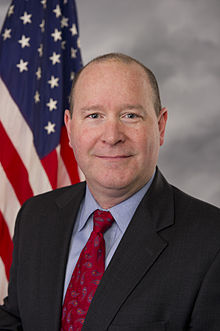Supporters of the Affordable Care Act have been on a smear and spin campaign mounting a full court press to stop the American Health Care Act and protect the status quo that is failing patients across the country.
Let’s separate the facts from their fiction.
Myth: The AHCA does not cover pre-existing conditions.
FACT: The AHCA explicitly maintains protections for pre-existing conditions. Furthermore, NO STATE, under ANY circumstances, may ever obtain a waiver for guaranteed issue of coverage, guaranteed renewability of coverage, or the prohibition on denying coverage due to pre-existing conditions. All of these protections will remain the law. To be absolutely certain, the legislation specifically clarifies that its provisions cannot be construed as allowing insurers to limit coverage for those with pre-existing conditions.
Myth: The AHCA will price those with pre-existing conditions out of the market, making health care unaffordable for them.
FACT: To the contrary. The AHCA actually includes reforms to allow states the flexibility to meet the needs of their unique patient populations and drive down costs for everyone. States may apply for a limited waiver for health ratings; however, the states must first set up a program for high-risk individuals or premium stabilization, or to participate in the federal invisible risk sharing program. No state may obtain a waiver for health status unless it has taken these efforts to protect those who might be affected. In states with a waiver, individuals who maintain continuous coverage could not be rated based on health status and the AHCA implements several layers of requirements and protections. First, states must show that the waiver would bring down premiums or increase the amount of people covered. States must also set up a risk-sharing program if they wish to allow some individuals to be charged based on their health status. But an individual can only be charged based on their health status if he or she waits until they are sick to purchase insurance or lets their coverage lapse for 63 days. It is important to remember that this waiver only applies to the individual insurance market, which covers approximately 7 percent of Americans. The vast majority of Americans with employer-provided coverage or government coverage (Medicare, Medicaid, Tricare, VA benefits, etc.) would not be affected. Importantly, patients who failed to maintain continuous coverage could only be charged based on health status for a period of one year. After an individual has maintained continuous coverage for twelve months, they would return to standard rates. These protections would also be in place for new enrollees (so long as they maintain continuous coverage going forward). Under AHCA, $8 billion is specifically set aside to help lower premiums and other out-of-pocket costs for patients in the individual market with pre-existing conditions who do not maintain continuous coverage and live in states that request and receive a waiver. The AHCA includes an additional $130 billion for states to implement risk sharing programs to drive down cost even more. Our plan already ensures that insurance companies are prohibited from denying coverage on the basis of a pre-existing condition, banned from rescinding coverage based on a pre-existing condition, and prevented from raising premiums on individuals with pre-existing conditions who maintain continuous coverage.
Myth: AHCA states do not have to cover essential health benefits.
FACT: The AHCA ensures essential health benefits are the federal law of the land and maintains other important protections. States have the option to obtain a waiver regarding federal essential health benefits, but the state must publicly attest its purpose for doing so and meet these requirements: reduce average premiums for patients, increase enrollment for residents, stabilize the state’s health insurance market, stabilize premiums for individuals living with pre-existing conditions, increase patients’ health care plan options and it must specify the benefits it will require instead of the federal standard.
NO STATE, under ANY circumstances, may ever obtain a waiver for pre-existing condition protection, prohibition on gender discrimination, for guaranteed issue and renewability, or for the right of dependents to stay on a family plan up to age 26.
Myth: 129 Million Americans have pre-existing conditions and could be denied coverage.
FACT:Â This legislation addresses the 7% of Americans on the individual market, and those in the small group market. Anyone with employer-provided coverage or government coverage (Medicare, Medicaid, Tricare, VA benefits, etc.) would not be affected. Again, this amendment would not allow any state to deny coverage to those with pre-existing conditions, and would require the extensive protections described above for those with riskier health profiles. Additionally, the bill includes $138 billion in funding to drive down costs for patients. This claim was awarded 4 Pinocchios by The Washington Post.
Myth: The AHCA allows rape to be considered a preexisting condition.
FACT: The AHCA absolutely does not classify rape or sexual assault as a pre-existing condition. Nor does it declare that individuals who have been raped or sexually assaulted would ever be denied coverage. This claim was awarded 4 Pinocchios by The Washington Post.
Myth: Members of Congress and their staff are excluded from the bill.
FACT:Â Not true. The House passed legislation to make a simple technical correction to ensure that the American Health Care Act (AHCA) and its amendments apply equally to everyone, including Members of Congress and their staffs. Find out more about the bill here: https://bucshon.house.gov/media-center/press-releases/dr-bucshon-cosponsors-bill-ensure-members-congress-aren-t-exempt-health.
Myth: The AHCA would cause premiums to spike for Americans across the country.
FACT: Obamacare has caused premiums to skyrocket across the nation, up about 25 percent on average this year. Patients have been left with premiums and deductibles they can’t afford. The AHCA will lower premiums over time by an average of 10 percent – and potentially more as further reforms are made and new and innovative ideas implemented that aim to lower premiums.
Myth: Patients with mental health conditions and substance abuse will be turned away from treatment.
FACT: The AHCA includes $15 billion specifically toward mental health and substance abuse disorders. While some have suggested Medicaid expansion enrollees will lose access to mental health or substance abuse services, our bill allows states to keep Medicaid expansion at a state’s regular matching rate. Furthermore, last Congress we passed the bipartisan 21st Century Cures Act. This new and innovative law includes a comprehensive mental health package with significant resources for states and reforms to improve the delivery of mental health care.
Myth: The AHCA kicks patients off of Medicaid.
FACT: Obamacare’s enhanced funding for the coverage of able-bodied adults prioritized them above those the Medicaid program was originally designed to help: the elderly, the disabled, and children. The AHCA responsibly unwinds that enhanced funding for Obamacare’s Medicaid expansion allowing patients to remain in Medicaid as long as they remain eligible. Starting in 2020, states can keep Medicaid expansion programs, but would receive their regular matching rate for new expansion population enrollees. For patients remaining in the program, the state will still receive the enhanced match. Over time, as the individuals see changes to their income or eligibility, they will naturally cycle off the program into other sources of coverage like employer-sponsored coverage, Medicare, or could receive a tax credit to purchase insurance in the private market.
Myth: The CBO says AHCA will kick 23Â million Americans off their insurance.
FACT: Not true. The CBO does estimate that fewer Americans will make the decision to purchase insurance if the government does not mandate they do so and send the IRS after them if they don’t. The majority of the coverage gains from Obamacare come from the law’s individual mandate – a fine from the federal government for failing to buy government approved coverage. There is a distinct difference between individuals making the decision to not purchase insurance and claims that these individuals will be “kicked†off their insurance. Furthermore, the CBO has an unreliable record regarding its estimations related to social behavior. For instance, the CBO projected that 21 million Americans would have coverage in 2016. The reality was half that number, about 10.4 million gained coverage. In fact, more than 19 million taxpayers either paid the penalty or claimed an exemption from the individual mandate. More people are paying or avoiding the penalty than gained coverage through Obamacare’s exchanges. Despite this reality, CBO still believes the individual mandate will be effective in increasing coverage, so that affects their assumptions on “lost†coverage. The AHCA provides every American access to affordable coverage, but does not force them to purchase insurance.
MORE >>Â Read the Bill
Â
- What’s in the Bill: The American Health Care Act (AHCA)
- The Good News and Faulty Assumptions in CBO’s New Analysis of the American Health Care Act (AHCA)
- The Washington Post: Outrageous AHCA Claim is False
- The Washington Post Fact Checks Rhetoric on Preexisting Conditions
- Dr. Bucshon Cosponsors Bill to Ensure Members of Congress Aren’t Exempt from Health Care Legislation





